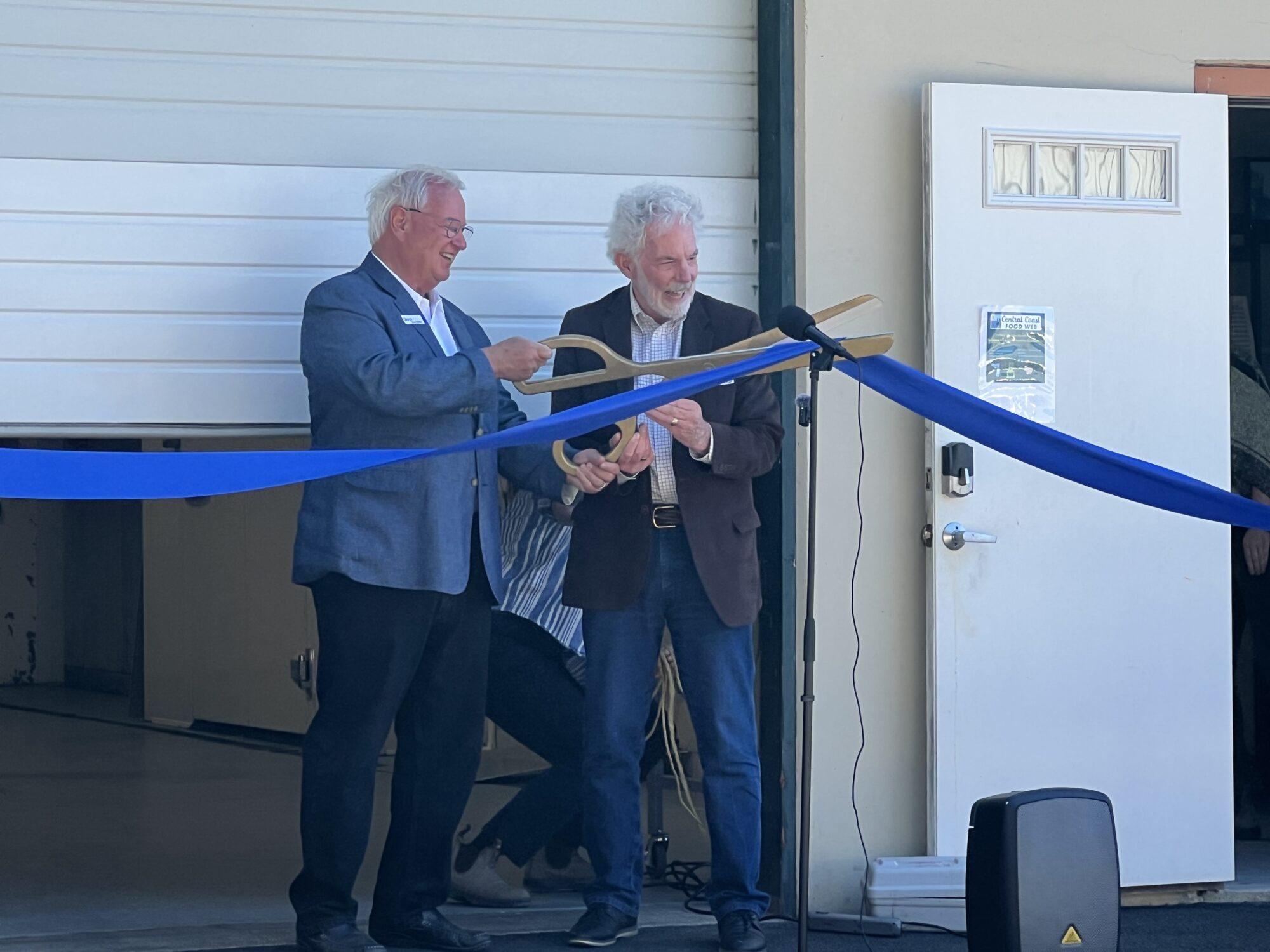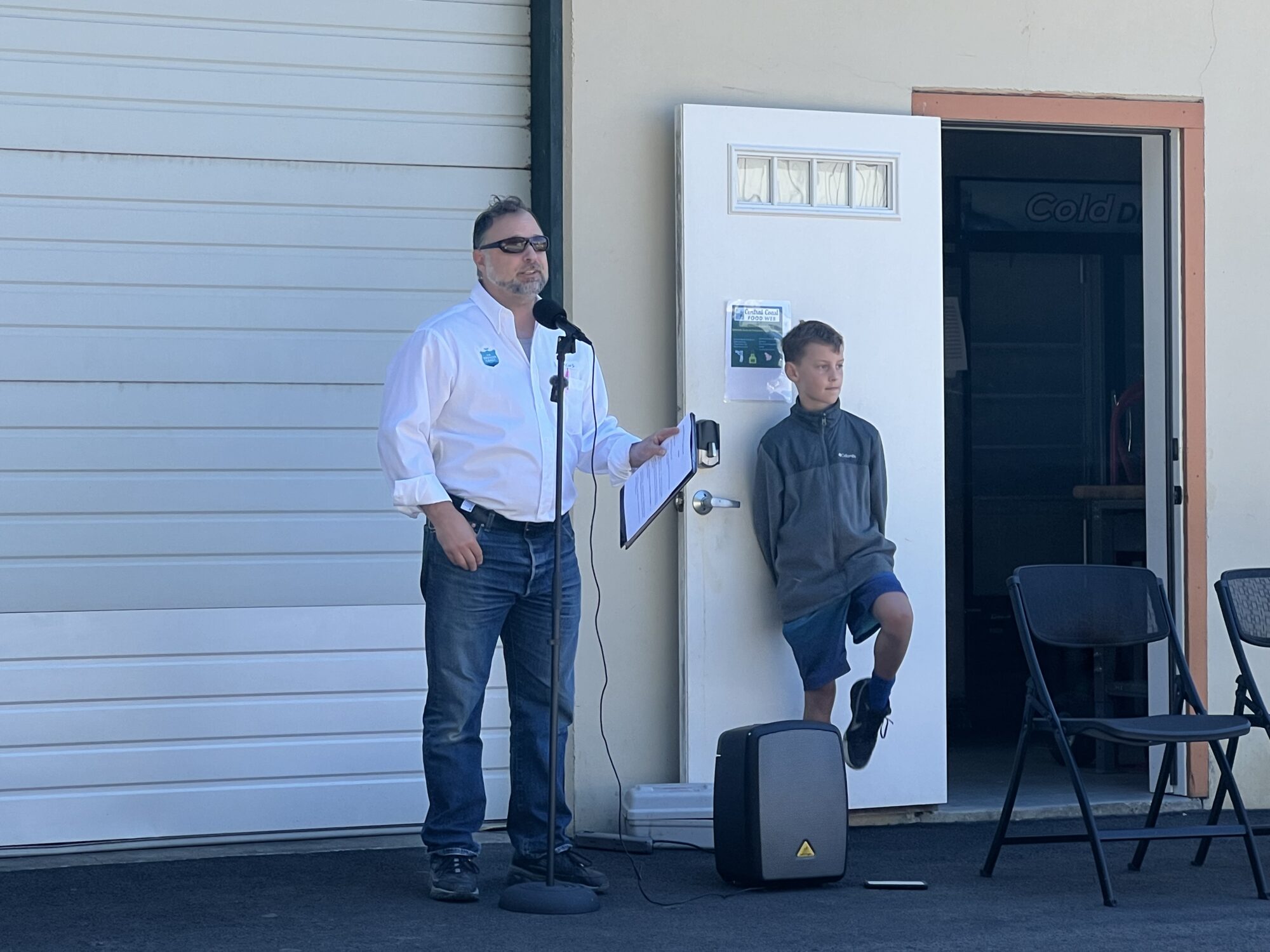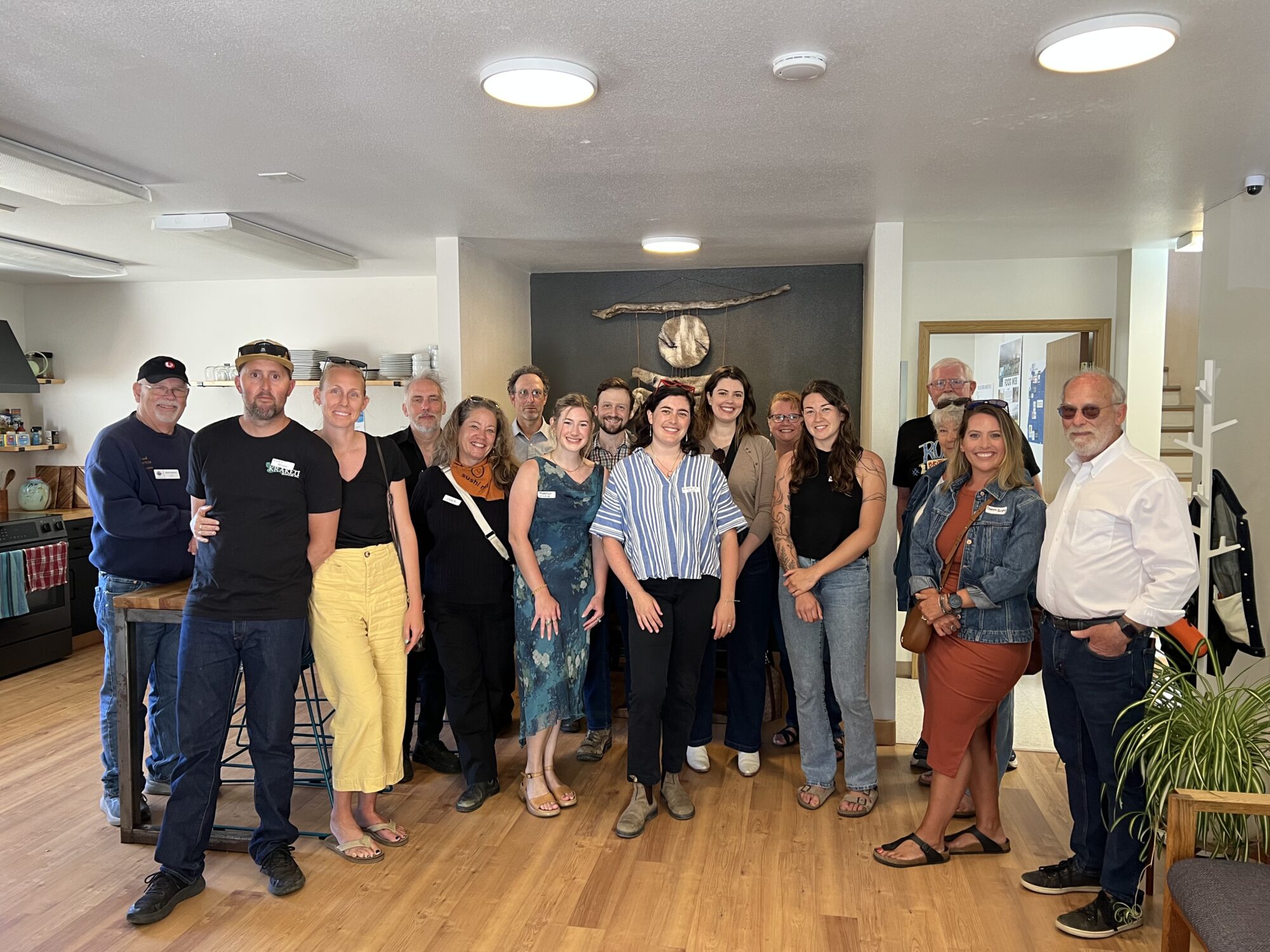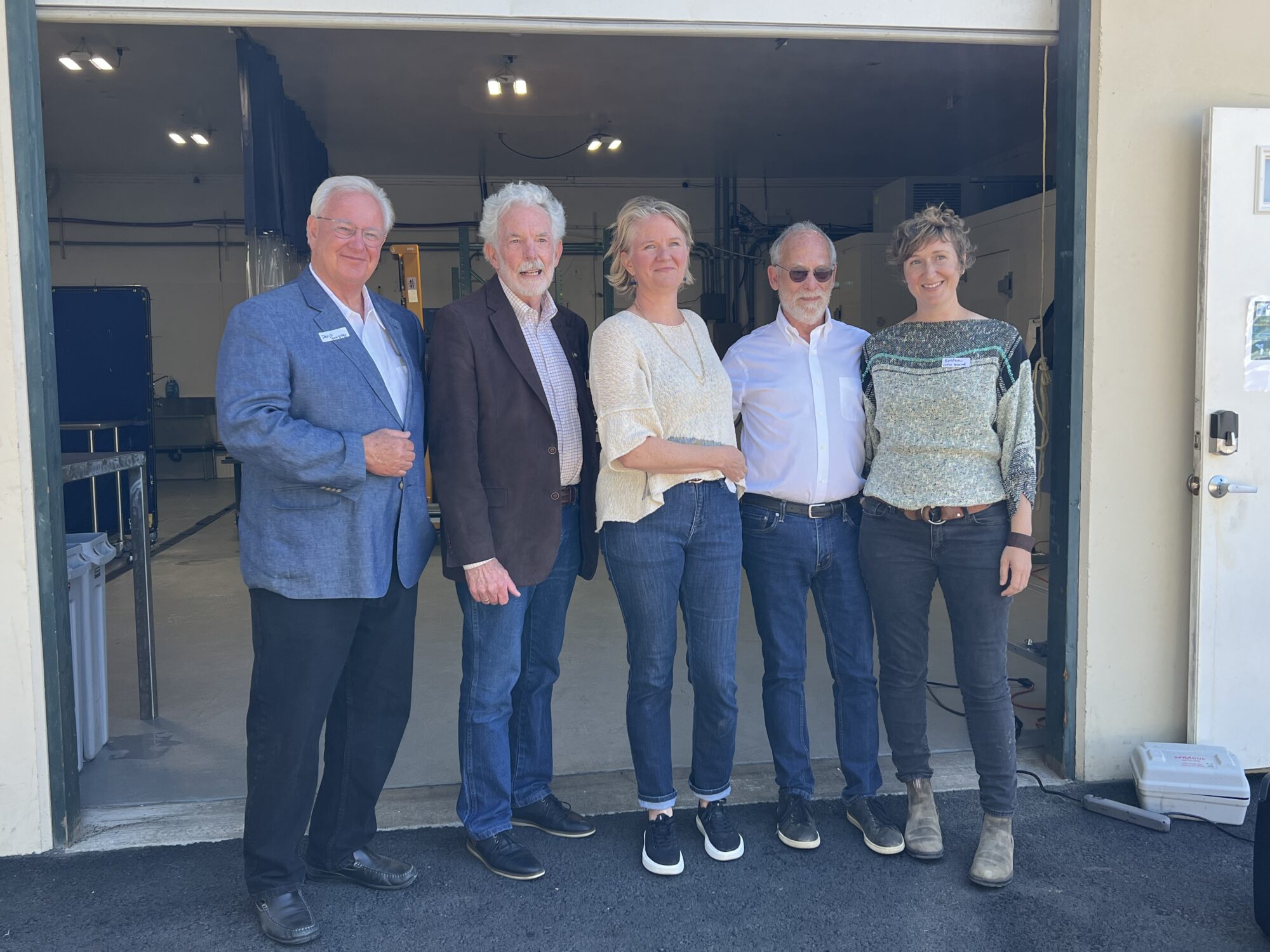This weekend, Oregon Coast Visitors Association (OCVA) staff joined community leaders, partners, and legislators in Newport for the official ribbon cutting of the newly upgraded Yaquina Lab—home to the Central Coast Food Web’s shared-use commercial kitchen and cold storage facility. It was an exciting and inspiring moment, celebrating years of collaboration and a shared vision for the future of food on the Oregon Coast.

OCVA Executive Director Marcus Hinz kicked things off with opening remarks, welcoming Laura Anderson of Local Ocean and Central Coast Food Web, along with Rep. David Gomberg and Senator Dick Anderson. Marcus reminded the crowd that innovation doesn’t just happen in big labs or corporate boardrooms. It happens in places like this: walk-in freezers, shared kitchens, and small-town community hubs.
“This is more than a building,” he said. “It’s a platform for producers to test ideas, launch products, and grow. Hopes and dreams need ways and means, and this space provides both.”



The upgrades were made possible in part by House Bill 3410, a bill OCVA championed with support from the full Coastal Caucus. HB 3410 is all about keeping more of our seafood local. Right now, 90 percent of the seafood served on the coast isn’t from Oregon. This bill helps flip that equation by investing in infrastructure like shared kitchens and cold storage, building stronger distribution systems, and laying the groundwork for a more resilient and locally focused seafood economy. It also supports mariculture development and a statewide mapping tool to connect producers and innovators.
The ribbon cutting was a powerful example of how these efforts come to life. The Yaquina Lab is now the first shared-use facility of its kind in the region, offering low-cost, low-risk space for upcoming businesses to process, package, and store their products.
This project also connects directly to other legislation we have worked on: House Bill 3568, the Seafood to Schools bill, would have brought local seafood into school cafeterias while giving students and kitchen staff the skills to prepare it. And the 100% Fish bill (HB 2969), which would have reduced waste and opened up new economic opportunities by finding creative uses for fish byproducts. While these bills did not pass in the 2025 session, they laid a groundwork for the continued work of attaining this kind of funding in the future.
Together, these efforts are building a future where coastal communities keep more value from what we harvest, and create more jobs and innovation in the process. We’re proud to support partners like Central Coast Food Web who are turning this vision into reality, one step at a time.
Learn more about our efforts for sustainable local seafood here: